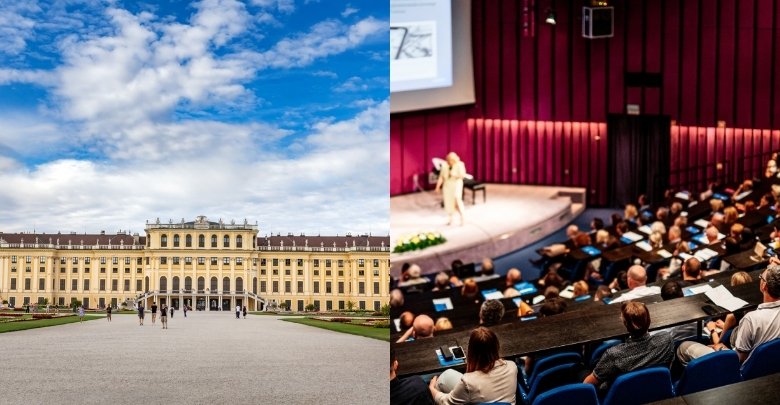The primary purpose of international conferences is to connect experts, researchers, and professionals from around the world so they can discuss emerging topics and share their knowledge. But have you ever wondered, “Why are international conferences often held at educational institutions?”
International conferences are often held at educational institutions because they provide advanced facilities, academic expertise, and a collaborative environment. Universities offer lecture halls and research facilities, making them cost-effective and convenient. Additionally, hosting conferences enhances institutional reputation and encourages global academic networking.
In this article, you will learn why educational institutions are the preferred choice for international conferences and how they enhance both the learning process as well as global connections.
Why Are International Conferences Often Held at Educational Institutions? Learn the Secrets
International conferences are a great way to bring people together and exchange ideas. These events often take place at educational institutions for several practical reasons. Let’s explore why universities and colleges make the perfect settings for such global gatherings.

Advanced Facilities for Conferences
Educational institutions offer modern facilities that are ideal for large conferences. Universities are equipped with spacious lecture halls and modern tech tools. These venues ensure that presentations run smoothly with minimal technical difficulties. Additionally, universities often have specialized rooms for workshops and breakout sessions.
Access to Academic Expertise
Universities are hubs of academic knowledge, providing access to experts in various fields. Hosting a conference at an institution brings top scholars and professionals to the forefront. This makes educational institutions the ideal place to discuss up-to-date research. Attendees benefit from the wealth of knowledge that universities have to offer.
Cost-Effective and Convenient
Holding conferences at educational institutions is often more cost-effective than other venues. Universities already have the necessary infrastructure, reducing extra costs for the organizers. Additionally, on-campus accommodations are often available for guests, further lowering expenses. This convenience is appealing to both organizers and attendees.
Opportunities for Networking
Educational institutions offer an environment that promotes networking and collaboration. Attendees can easily interact with experts, professors, and students. Networking events held within the campus promote valuable connections and partnerships. An open, collaborative atmosphere is key to meaningful exchanges.
Enhances Institutional Reputation
Hosting an international conference enhances the reputation of the educational institution. It allows the university to showcase its research capabilities and global connections. Successful events demonstrate the institution’s leadership in encouraging academic discussions. This reputation can lead to increased recognition and more opportunities for future conferences.
Convenient Location for Global Participants
Universities are often located in easily accessible cities, so international students can easily access them. Global events, such as international conferences in USA, UK, or Canada, are often held in major academic hubs with strong global connections. Their central locations offer easy access to transportation, such as airports and public transit. The surrounding areas also provide options for dining and leisure during the conference.
Collaborative Environment
Educational institutions provide a collaborative and academic-focused environment, perfect for conferences. The campus culture encourages knowledge sharing and discussion. Academic conferences thrive in spaces that prioritize learning and professional development. This builds a positive atmosphere where ideas are freely exchanged.
Encourages Long-Term Academic Benefits
Organizing a conference at a university often has long-term academic benefits. The event can inspire new research projects and collaborations. It encourages participants to continue working together beyond the conference. This long-lasting impact helps strengthen global academic networks.
Popular University Campuses That Frequently Host International Conferences
Many international conferences take place on university campuses known for their academic excellence and great facilities. These institutions offer space, support, and a vibrant environment for global events. Let’s take a look at some popular campuses that often host such conferences.
Harvard University, USA
Harvard provides world-class venues for international academic and professional gatherings. The university’s historic setting attracts top minds from across the globe. Conferences here benefit from its rich intellectual culture. Its location in Cambridge also makes it easy for international travelers to attend.
University of Oxford, UK
Oxford regularly welcomes scholars and experts from different fields to its conference events. The university’s historic charm blends with advanced academic resources. Guests enjoy a unique mix of tradition and innovation. Its many colleges offer ideal spaces for workshops and lectures.
University of Tokyo, Japan
The University of Tokyo is known for hosting high-level international conferences in science, technology, and humanities. It offers modern facilities and strong research networks. Visiting scholars find a stimulating environment to share their work. The campus also offers convenient access to the city.
Stanford University, USA
Stanford’s location in Silicon Valley draws top experts and global innovators to its conferences. Many consider it one of the most popular conference locations in the USA, especially for tech-driven events. The campus provides high-tech conference halls and open spaces. Events here often focus on future technologies and global challenges. Its strong academic network boosts engagement and participation.
University of Melbourne, Australia
This university regularly hosts conferences focused on education, environment, and health sciences. Attendees enjoy the vibrant campus culture and beautiful surroundings. Melbourne’s multicultural appeal makes it a welcoming space for international guests. The university’s facilities support both large gatherings and smaller academic meetings.
National University of Singapore (NUS)
NUS is a leading choice for international conferences in Asia. The campus supports collaboration through modern venues and excellent services. Conferences held here often feature cross-disciplinary research and global themes. Its strategic location makes it easy for guests from neighboring countries to attend.
Do Educational Institutions Offer Better Value for Conference Organizers?
Yes, educational institutions often offer better value for conference organizers compared to traditional venues. These campuses already have built-in infrastructure like lecture halls, classrooms, and auditoriums. Using existing resources reduces the need for external rentals and setup costs. Organizers also save money on furniture, projectors, and sound systems. This setup allows conferences to run smoothly without spending extra on equipment.
Another benefit is the availability of on-campus services such as catering, housing, and parking. Many universities offer affordable lodging for speakers and guests. This convenience makes planning easier and helps attendees stay close to the event. Universities also have experienced staff who assist with event planning and logistics.
Educational institutions create a strong learning atmosphere that adds value to any conference. Being on campus encourages more interaction among participants and local students. Networking becomes easier when everyone shares a common space and purpose. For many, this environment makes the experience more engaging and memorable.
What Amenities Do Educational Venues Offer to Attendees?
Educational venues are becoming popular for hosting conferences and academic events. They offer more than just space—they support the full experience. Let’s explore the useful amenities these venues provide to attendees.
Modern Conference Rooms
Universities provide well-equipped conference rooms with audio-visual tools and smart boards. These spaces are ideal for presentations, workshops, and discussions. Attendees enjoy clear sound and visual displays during sessions. The layout supports learning and interactive engagement for all participants.
On-Campus Accommodation
Many campuses have dorms or guest houses available for overnight stays. These are budget-friendly and close to the event location. Staying on campus reduces travel time and adds convenience. Guests appreciate the easy access to their sessions each day.
Dining Facilities and Cafeterias
Attendees can enjoy meals at campus cafes, food courts, or dining halls. Options often include vegetarian, vegan, and international choices. This variety ensures everyone finds something suitable and satisfying. Dining areas also provide great spots for informal networking.
High-Speed Internet Access
Most educational institutions offer free Wi-Fi throughout the campus for attendees. Fast internet helps guests stay connected and check emails. It also supports real-time event updates and virtual participation. Stable connectivity is essential for both presenters and guests.
Study Lounges and Relaxation Areas
Campuses include quiet lounges and common areas perfect for breaks. These spaces allow attendees to relax or prepare between sessions. Comfortable seating and calm surroundings create a peaceful atmosphere. Some areas may even include reading corners or small libraries.
On-Site Transportation and Parking
Larger campuses offer shuttle services to move between buildings. Attendees benefit from clearly marked routes and helpful signs. Parking lots are usually available for guests with vehicles. These transportation options make exploring campus easier during the event.
How Do Scholarly Events Form Research Trends?
Scholarly events like conferences play a big role in shaping research trends. They bring together experts and allow for discussions that spark new ideas. Let’s explore how these events contribute to the development of research trends.
Facilitating Idea Exchange
Scholarly events provide a platform for experts to exchange ideas and opinions. These discussions often lead to new research questions and directions. Presentations introduce fresh concepts that spark curiosity among attendees. By hearing multiple perspectives, researchers refine their own work and explore new areas.
Networking Opportunities
Networking at these events encourages collaboration between scholars from different fields. New connections often lead to joint research projects. Through informal conversations, participants learn about ongoing research and its gaps. These connections help shape future trends and expand the scope of research.
Exposure to Emerging Topics
Attending a scholarly event such as an academic conference exposes researchers to current topics and technology. Discussions often highlight the importance of international academic conferences in driving global research focus. These topics often guide attendees in choosing their research direction. Researchers return to their institutions with new knowledge and ideas to explore.
Presentation of Breakthrough Findings
Research breakthroughs presented at scholarly events influence the direction of future studies. These discoveries often prompt further investigation into unexplored aspects. Presenters set the stage for others to build upon their findings. This process drives innovation and creates new research trends in various fields.
Access to Diverse Research Methods
Scholarly events offer attendees the opportunity to learn about new research methodologies and techniques. Exposure to different approaches allows researchers to adapt and apply them. This broadens the scope of research and opens doors for new trends. Scholars often integrate these methods into their own studies to stay relevant.
Collaborative Publications and Journals
Collaborative research often results in joint publications after scholarly events. These publications set a precedent for new areas of study. They also provide a benchmark for future research trends. Scholarly events help form the foundation for these collaborations, driving innovation.
Top Tips to Plan an International Conference at an Educational Institution
Planning an international conference at an educational institution takes preparation, teamwork, and attention to detail. Universities offer great facilities but still need careful coordination. Here are top tips to help you plan a successful event at an academic venue.
- Choose the Right Institution: Look for a campus with suitable space, a strong academic presence, and accessibility. A well-known university attracts more participants and credibility.
- Book Venues Early: Educational institutions have busy schedules, so secure your preferred dates in advance. Early booking ensures access to prime locations on campus.
- Coordinate with Campus Departments: Work closely with event, housing, and catering departments for smooth planning. Clear communication avoids delays and last-minute confusion.
- Arrange Accommodation for Attendees: Reserve on-campus or nearby lodging for guests to save travel time. Comfortable stays help participants focus more on the conference.
- Set Up Tech Support in Advance: Confirm availability of AV equipment, Wi-Fi, and tech staff before the event. Proper setup avoids disruptions during live sessions.
- Promote the Conference Widely: Use academic networks, social media, and mailing lists to reach potential attendees. Early promotion increases interest and overall participation.
- Plan for International Guests: Offer visa support letters and travel information for overseas attendees. Help them feel welcome with multilingual signage and materials.
- Include Networking and Cultural Activities: Organize campus tours, social events, or local outings for participants. These activities build connections beyond formal conference sessions.
FAQs About Why Are International Conferences Often Held at Educational Institutions?
In this section, we’ve collected some frequently asked questions that dive deeper into why educational institutions are the preferred venues for international conferences. If you’re curious about various aspects of this trend, you’ll find answers to common queries here.
How Do Campus Cultures Enhance the Conference Experience?
Campus environments promote open dialogue, innovation, and active learning, which naturally enrich conference interactions. The student-driven atmosphere facilitates creativity and community. Attendees feel part of something dynamic, not just formal sessions. This energy makes conferences more engaging and impactful.
What Role Do Student Volunteers Play in Conference Success?
Student volunteers help with logistics, guest support, and tech setup, contributing to smooth event flow. Their involvement adds energy and flexibility. They also gain valuable exposure and experience. This mutual benefit enhances the overall conference environment.
How Does the Academic Calendar Influence Conference Planning?
The academic calendar affects venue availability, accommodation, and student participation. Planning around breaks ensures more resources are accessible. It also reduces conflicts with regular university operations. Understanding term schedules is crucial for smooth coordination.
Why Are Libraries Important for Academic Conferences?
University libraries provide access to extensive academic resources, archives, and quiet spaces for research during conferences. Attendees benefit from these tools for deeper learning. Many even conduct mini-research on-site. Libraries truly support intellectual engagement beyond presentations.
What Impact Do Campus Tours Have on Attendee Engagement?
Offering campus tours adds depth to the event experience. Attendees explore the institution’s history, culture, and architecture. It builds a connection to the venue and supports informal networking. Tours leave a lasting impression that enhances event memory.
Can Educational Conferences Support Cross-Cultural Exchange?
Yes, educational institutions host diverse populations, promoting international dialogue and cultural sharing. Conferences naturally benefit from this built-in diversity. Attendees experience a global mindset throughout. It creates a richer, more inclusive conference environment.
How Do Research Labs Add Value to Conferences?
Research labs provide real-world context to academic discussions. Demonstrations or lab visits help attendees connect theory with practice. They also showcase the institution’s strengths. These experiences enhance credibility and interest in the host institution.
Why Are Universities Ideal for Thematic or Specialized Conferences?
Universities often specialize in certain disciplines, making them perfect for focused or niche topics. Their faculty and resources support deeper exploration. Attendees engage with subject matter experts on-site. This targeted structure boosts content quality and impact.
Final Thoughts
A number of international conferences are hosted at educational institutions due to their advanced facilities, academic expertise, and collaborative environment. Universities provide ideal spaces, such as lecture halls, research resources, and accommodations, making them both cost-effective and convenient. Apart from this, educational venues provide networking opportunities and enhance an institution’s reputation by showcasing global academic connections.
When asked why are international conferences often held at educational institutions? it’s clear that these venues offer a perfect mix of resources and atmosphere for global discussions. By hosting these events, universities contribute to the advancement of research and facilitate long-term academic benefits. Overall, educational institutions provide the necessary tools for success, which makes them the obvious choice for conferences worldwide.







